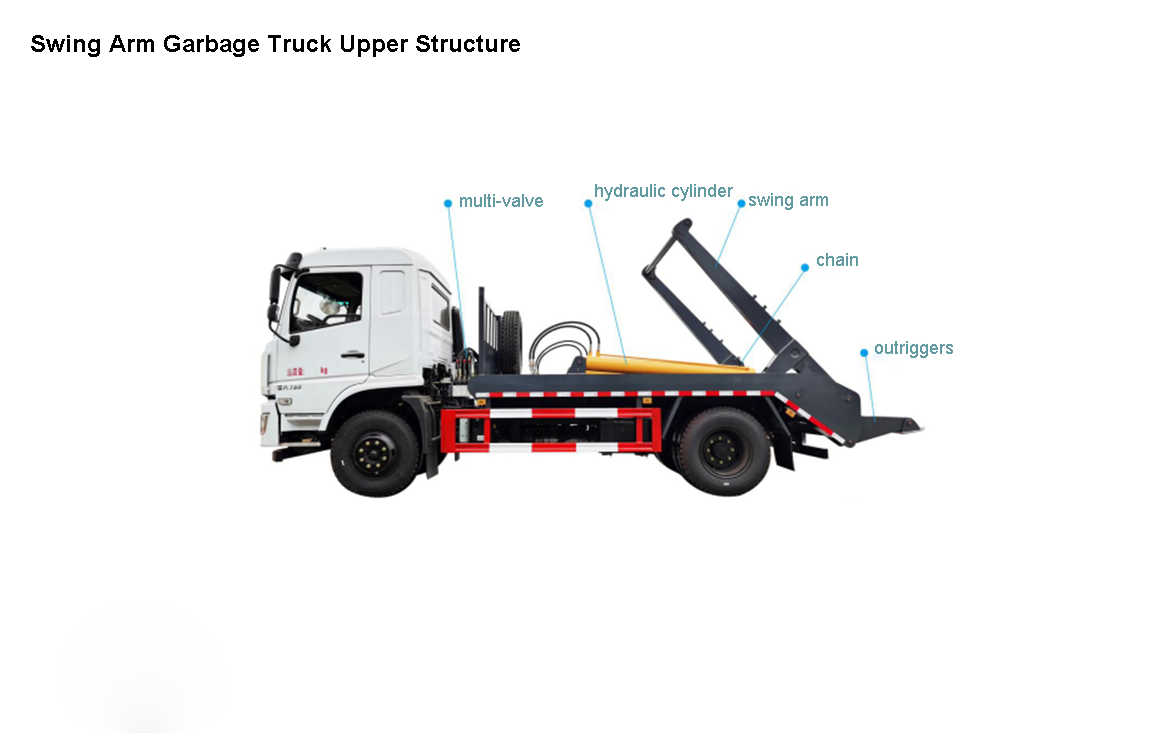Introduction
Waste management is a critical aspect of urban planning and environmental sustainability. Garbage compactor trucks play a vital role in this process by efficiently collecting and compacting waste materials from residential, commercial, and industrial areas. These specialized vehicles help to streamline the waste collection process while minimizing environmental impact. In this article, we will explore the features, benefits, and maintenance tips for garbage compactor trucks designed for easy maintenance.
Understanding Garbage Compactor Trucks
Garbage compactor trucks, also known as refuse compactors or compacted garbage trucks, are specifically designed to collect, compact, and transport solid waste. These trucks come in various sizes and configurations, ranging from small rear-loading compactors to large front-loading or side-loading models used for commercial and industrial waste collection.
The primary function of a garbage compactor truck is to compress waste materials to maximize the truck's carrying capacity and reduce the number of trips required for collection. By compacting the waste, these trucks can transport a larger volume of waste to disposal facilities, reducing overall transportation costs and environmental impact.
Key Features of Garbage Compactor Trucks
1. Compaction Mechanism: Garbage compactor trucks are equipped with hydraulic systems that compress waste materials using a compacting mechanism. This mechanism can be operated manually or automatically, depending on the design of the truck.
2. Storage Capacity: The storage capacity of a garbage compactor truck varies depending on the size and type of the vehicle. Larger trucks used for commercial purposes typically have higher storage capacities to accommodate large volumes of waste.
3. Loading Mechanism: Garbage compactor trucks can be rear-loading, front-loading, or side-loading, depending on the design of the vehicle. Each type of loading mechanism has its advantages and is suitable for specific waste collection scenarios.
4. Safety Features: To ensure the safety of operators and the public, garbage compactor trucks are equipped with safety features such as backup cameras, warning lights, and alarms. These features help prevent accidents and improve overall operational efficiency.
Benefits of Garbage Compactor Trucks
1. Efficiency: Garbage compactor trucks are designed to streamline the waste collection process by compacting waste materials and reducing the number of trips required for collection. This results in cost savings and increased operational efficiency for waste management companies.
2. Environmental Impact: By maximizing the carrying capacity of each trip, garbage compactor trucks help reduce fuel consumption and greenhouse gas emissions associated with waste transportation. This contributes to environmental sustainability and helps mitigate the impact of waste disposal on the environment.
3. Improved Hygiene: Garbage compactor trucks are equipped with sealed compartments to prevent leakage and odors during transportation. This helps maintain hygiene standards and ensures the safe and sanitary collection of waste materials.
4. Versatility: Garbage compactor trucks can be used for a wide range of waste collection applications, including residential, commercial, and industrial waste. Their versatility makes them a valuable asset for waste management companies operating in diverse environments.
Maintenance Tips for Easy Maintenance
1. Regular Inspections: To ensure the smooth operation of a garbage compactor truck, regular inspections are essential. This includes checking the hydraulic system, compaction mechanism, storage compartments, and safety features for any signs of wear or damage.
2. Scheduled Maintenance: Implementing a preventive maintenance schedule is crucial for keeping garbage compactor trucks in optimal condition. This includes regular oil changes, filter replacements, and hydraulic system checks to prevent breakdowns and extend the lifespan of the vehicle.
3. Operator Training: Proper training of operators is essential for the safe and efficient operation of garbage compactor trucks. Work truck fleet management tips should be familiar with the vehicle's controls, safety features, and maintenance requirements to prevent accidents and ensure smooth operation.
4. Cleaning and Sanitization: Regular cleaning and sanitization of garbage compactor trucks help prevent the buildup of waste residue and odors. Cleaning the storage compartments, compaction mechanism, and exterior surfaces of the vehicle will help maintain hygiene standards and prolong the life of the truck.

5. Use Genuine Parts: When replacing parts or components of a garbage compactor truck, it is essential to use genuine OEM parts. Genuine parts are designed specifically for the vehicle and ensure compatibility and performance, reducing the risk of malfunctions and breakdowns.
Conclusion
Garbage compactor trucks play a crucial role in waste management by efficiently collecting and compacting solid waste materials. These specialized vehicles offer a range of benefits, including increased efficiency, reduced environmental impact, and improved hygiene standards. By following maintenance tips such as regular inspections, scheduled maintenance, operator training, and proper cleaning, waste management companies can ensure the smooth operation and longevity of their garbage compactor trucks. With easy maintenance practices in place, garbage compactor trucks can continue to serve as essential tools in the sustainable management of waste in urban environments.
